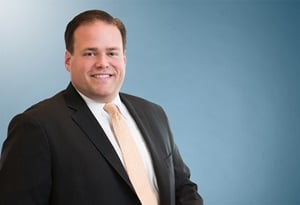Faegre Drinker Partner Bradford Campbell Testifies Before U.S. Department of Labor on Investment Advice Proposed Class Exemption
Today, Faegre Drinker partner Bradford Campbell testified before the U.S. Department of Labor’s Employee Benefits Security Administration (DOL), during its public hearing regarding a proposed prohibited transaction exemption intended to improve investment advice for workers and retirees.
Campbell was testifying on behalf of seven insurance industry organizations: the Association for Advanced Life Underwriting/GAMA International, Committee of Annuity Insurers, Indexed Annuity Leadership Council, Insured Retirement Institute, National Association for Fixed Annuities, National Association of Independent Life Brokerage Agencies, and the National Association of Insurance and Financial Advisors.
The proposed class exemption would permit a wide array of reasonable compensation arrangements for investment advice fiduciaries under the Employee Retirement Income Security Act (ERISA), and was proposed by DOL as part of a package of rules intended to replace the DOL’s 2016 Fiduciary Advice regulation that was vacated by the U.S. Court of Appeals for the Fifth Circuit in 2018. The proposal also announced new interpretive guidance related to the definition of fiduciary investment advice.
Campbell’s testimony focused on two issues: needed modifications to the proposed class exemption to properly apply to insurance and annuity recommendations; and, significant concerns with the new fiduciary guidance.
“The proposed class exemption is designed to align with securities regulation, but insurance regulation is materially different in key respects,” Campbell testified. “If the Department wishes the exemption to be broad-based and widely used, it must be modified to provide for insurance-specific conditions as an alternative to the securities-specific conditions.
Campbell explained that, “the guidance reinterpreting the 1975 fiduciary investment advice five-part test is fundamentally flawed.” He added that the organizations believe “a modified form of the class exemption should proceed, but the Department needs to rescind and fundamentally reexamine its fiduciary guidance.” The guidance is “not just bad policy, but cannot be justified on its face as a reasonable interpretation of the 1975 regulation,” he said.
The organizations, Campbell said in closing, are advocating for changes that serve “the best interests of our clients, and will ensure they have access to the products and services that best meet their individualized needs.”


